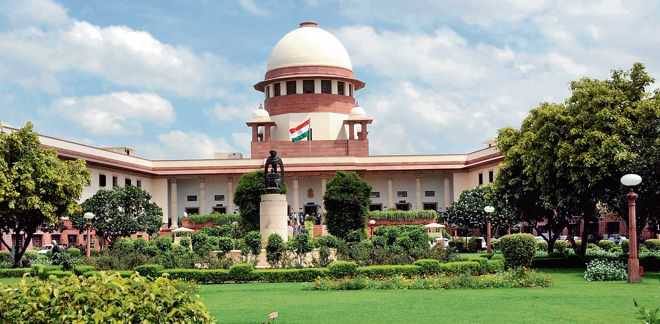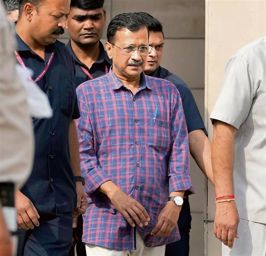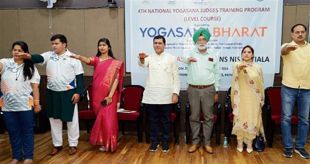
Right to know: The Supreme Court waved aside the government’s objections to the publication of the Rafale documents.
M Sridhar Acharyulu & Yashovardhan Azad
M Sridhar Acharyulu & Yashovardhan Azad
Former Central Information Commissioners
IN an important ruling with long-term implications, the Supreme Court recently set aside the Attorney General’s objections and declared the documents relating to the Rafale deal, published in The Hindu, as admissible. The government pleaded that the matter related to national security and the documents, which were privileged, were stolen. Later, it was submitted that the documents were photocopied, but still attracted the Official Secrets Act (OSA), 1923. Waving aside the objections filed on behalf of the government, the court emphasised the supremacy of the citizen’s right to know in public interest under the Right to Information (RTI) Act over other considerations.
The documents’ disclosure drew the government’s ire since these were used by the press to allege that:
(a) The Prime Minister’s Office (PMO) was running parallel negotiations on the deal, with separate meetings held by some PMO officials; (b) Three members of the team had recorded their disagreement over some important aspects of the deal; and (c) Necessary financial requirements like sovereign guarantee were waived to secure the deal.
The Attorney General (AG) relied upon Sections 3 and 5(1) of the OSA, Sections 8(1)(a) of the RTI Act and Section 123 of the Evidence Act. The OSA is used against spies as it was conceived to deal with acts of espionage. Section 8(1) (a) of the RTI Act prohibits disclosure of information if it is prejudicial to the sovereignty of the State. The Chief Justice of India (CJI) made a notable observation that Parliament has legislated nothing to the effect that prevents publishing of a secret document or prohibited it from presenting it in a court of law.
There is great significance attached to Justice KM Joseph’s observations on the RTI, the OSA and the freedom of the press. Joseph has made out a strong case for freedom of information as opposed to the archaic OSA. The new norm is transparency and open governance, thus making the OSA redundant in view of public interest. Section 22 of the RTI Act referred to by the judge overrides all other Acts. A public query for information has to be weighed against the touchstone of transparency and accountability, as laid down in the preamble of the RTI Act.
It would certainly be no one’s case that the information published in The Hindu would affect the sovereignty of our country. Matters of public interest need to come out in the open, which is the hallmark of a thriving democracy. The published documents would unleash a healthy debate on the procedures adopted for defence deals and set the norms for the future. Justice Joseph’s judgment sends out a powerful message to all stakeholders that the press ought to remain free and forthright while reporting on matters of national interest.
The government shifted its stand frequently. First, it threatened to prosecute journalists and lawyers for using these ‘stolen’ documents, then it was announced it would not do so. Later, the AG said it was a mistake to say that the documents were stolen as the files were intact and it could be a case of photocopying without permission. The AG contended that the documents published by The Hindu and used by the petitioners were ‘privileged’. The government argued that the courts should not admit such documents at all. Had the plea been accepted, it would have had an adverse impact on freedom of information and expression. The CJI, who drafted the order for himself and another judge, significantly observed that the government had not questioned the correctness of the contents of the document. Thus, the apex court cleared major hurdles placed by the government to the judicial process of ‘review’ of its earlier verdict giving the ‘clean chit’.
The SC verdict has also dented the government’s stand of relying on privilege and secrecy under the Evidence Act and the OSA. Privilege cannot be invoked in the face of public interest and a mere executive classification of documents as secret cannot prevent the courts from examining them. In effect, the right of citizens to seek information about a public deal such as the purchase of Rafale jets cannot be discounted.
Public interest and freedom of the press obviously outweighed the government’s claim of privilege. Section 123 of the Evidence Act states, “No one shall be permitted to give any evidence derived from unpublished official records relating to any affairs of the State, except with the permission of the officer at the head of the department concerned, who shall give or withhold such permission as he thinks fit.” The section mentions unpublished records. The court stated that The Hindu papers had already been published and read by the people.
In SP Gupta vs Union of India, the apex court had said that a claim of immunity against disclosure under Section 123 had to be essentially adjudged on the touchstone of public interest, and to satisfy itself that national interest was not put to jeopardy by requiring disclosure, the court may even inspect the document in question, though this power had to be sparingly exercised.
The apex court reiterated its judgment in Pooran Mal vs Director of Inspection (Investigation) of Income Tax, New Delhi, stating that “test of admissibility of evidence lies in its relevance, unless there is an express or necessarily implied prohibition in the Constitution or other law, evidence obtained as a result of illegal search or seizure was not liable to be shut out.”
The question is whether these documents were part of the sealed cover given to the Supreme Court during hearing of the PIL for a probe. This question arises because of the vehement opposition by the government and the AG, who contended that the petition for review was mainly based on the leaked documents.
The SC judgment has given a major boost to the media, firmly establishing its right to freedom in publishing information without fear or favour. It has also stamped its whole-hearted approval of the transparency law, which overrides all other laws, enabling all information in public interest to be given to the public.



























